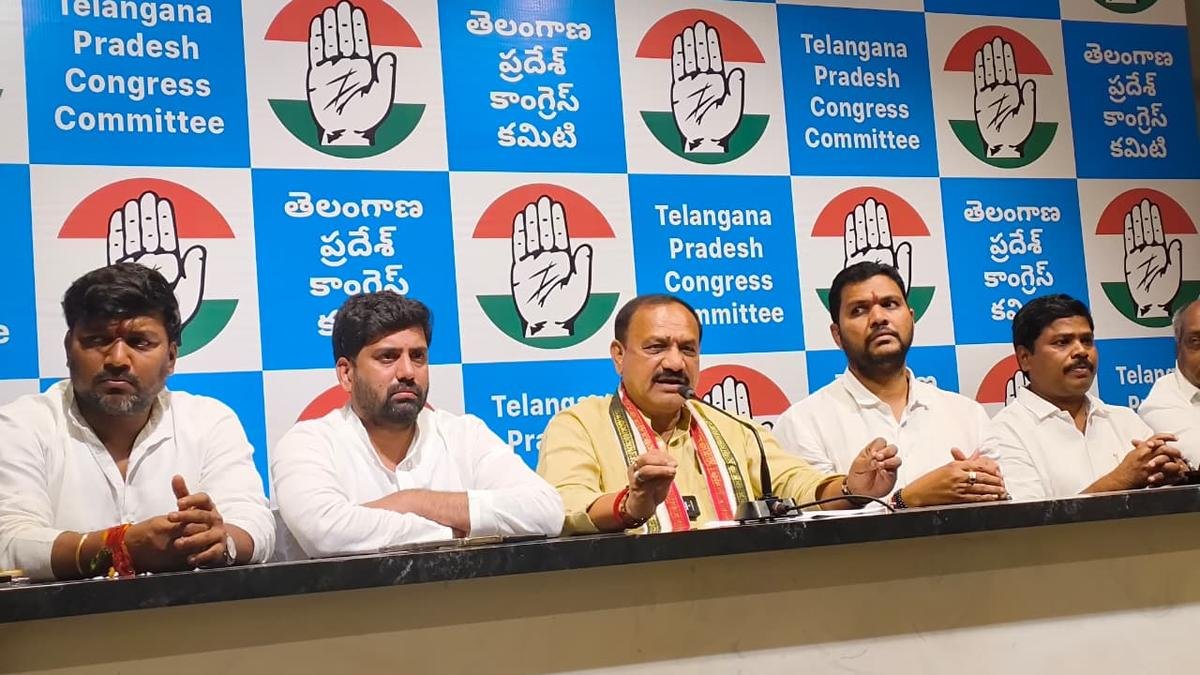The political landscape of Telangana is heating up as the ruling Bharat Rashtra Samithi (BRS) launches its latest campaign titled the “Dues Card”. The initiative, aimed at highlighting the alleged unfulfilled promises of the Congress government, has sparked controversy. Telangana Pradesh Congress Committee (TPCC) Chief A. Revanth Reddy hit back strongly, calling the campaign “laughable” and an open confession of BRS’s own failures during its decade-long rule in the state.
The ‘Dues Card’ Campaign Explained
The BRS’s “Dues Card” campaign is designed as a political counter to the Congress government, which took power in Telangana after the 2023 Assembly elections. The card seeks to remind voters of what BRS claims are pending commitments from the Congress within its short tenure. It lists welfare schemes, development promises, and alleged gaps in governance.
However, political observers note that the very idea of BRS issuing such a card so soon after losing power raises eyebrows. Instead of gaining traction, the move appears to have backfired, drawing sharp criticism from the ruling Congress leaders.
Congress’s Counterattack
TPCC Chief Revanth Reddy dismissed the BRS campaign as “self-exposing propaganda”. According to him, the BRS, which ruled Telangana for ten years under former Chief Minister K. Chandrashekar Rao (KCR), had left behind a legacy of unfulfilled promises, corruption, and inefficiency.
Revanth Reddy pointed out that during its two consecutive terms, BRS had ample opportunities to transform Telangana into a model state but failed miserably in key sectors such as agriculture, employment generation, education, and health. “The people of Telangana have given their verdict against KCR’s misrule. Now, instead of introspection, BRS is trying to mislead people with cheap gimmicks like the Dues Card,” he said.
Ten Years of BRS Misrule: Congress’s Charges
The Congress leadership has been consistent in attacking the BRS’s decade-long governance. Some of the key allegations include:
- Unemployment Crisis: Despite promises of filling lakhs of government jobs, unemployment rates remained high, pushing many youth into distress.
- Farmer Distress: Farmers faced mounting debts and inconsistent implementation of schemes like Rythu Bandhu, leading to widespread dissatisfaction.
- Corruption Allegations: Multiple irrigation projects, including the ambitious Kaleshwaram project, were mired in allegations of massive corruption.
- Neglect of Education and Healthcare: Government schools and hospitals continued to suffer from poor infrastructure and lack of resources, contrary to BRS’s tall promises.
- Autocratic Leadership: KCR’s style of functioning, with power centralized in his family, was criticized for stifling democracy and weakening local governance.
People’s Mandate Against BRS
The 2023 Telangana Assembly elections dealt a serious blow to BRS, reducing its dominance and allowing the Congress to form the government. Revanth Reddy and his party argue that this electoral verdict itself is proof that people have rejected BRS’s governance model. “Instead of questioning Congress within ten months of governance, BRS should answer why it failed to deliver in ten years,” Congress leaders remarked.
Why the Campaign is Seen as a Blunder
Political analysts believe that the “Dues Card” campaign is not resonating with the masses because it inadvertently highlights the fact that BRS had enough time and power but still left many promises incomplete. Rather than cornering the Congress, the campaign has reminded people of what BRS itself failed to achieve.
Moreover, the Congress government has only been in power for less than a year and is in the process of rolling out its “Six Guarantees,” which formed the backbone of its electoral promises. By targeting the ruling party too soon, BRS risks appearing desperate and out of touch with people’s expectations.
The Road Ahead for Telangana Politics
As Telangana enters a crucial phase of governance transition, the war of words between Congress and BRS is expected to intensify. While Congress is determined to consolidate its base by delivering on its promises, BRS is attempting to stay politically relevant after its electoral defeat.
The upcoming local body elections and the performance of the Congress government in fulfilling its Six Guarantees will play a key role in shaping the political narrative. For now, however, the “Dues Card” campaign appears to have strengthened Congress’s position by giving it an opportunity to remind people of BRS’s unfulfilled promises and failures.
Conclusion
The BRS’s “Dues Card” campaign, intended as a political weapon, has turned into a double-edged sword. Instead of putting Congress on the defensive, it has exposed the shortcomings of BRS’s decade-long governance. As TPCC Chief Revanth Reddy rightly put it, the campaign is “laughable” because it serves as an admission of failure rather than a credible critique of the present government.
For the people of Telangana, the real concern lies not in political blame games but in effective governance, welfare delivery, and inclusive development. The Congress government now faces the task of proving that it can do what BRS could not achieve in ten years.







